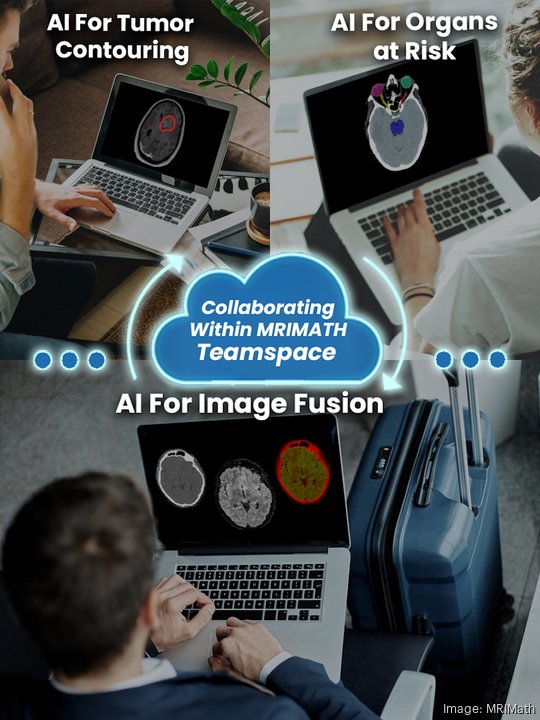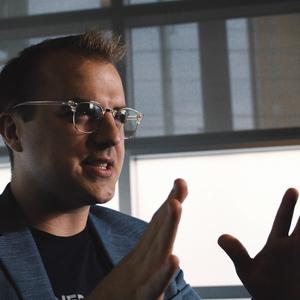
Contouring the margins of a tumor is a task that can take an hour or more, according to Hassan Fathallah-Shaykh.
And it is a process that can result in a lot of variability.
"If you give the same tumor to a radiation therapist and tell them to contour it and you give it to a different one, you'll get two different contours," said Fathallah-Shaykh, co-founder of MRIMath.
MRIMath is a Birmingham-based startup aiming to solve this issue as well as speed up the process using artificial intelligence. Tumor contouring is an important step in medical treatments, as it allows physicians to understand if a tumor is growing and where exactly its located. Variability in contouring translates to variability in treatment.
"What we've done is develop AI that will produce the contour for the tumor margin," Fathallah-Shaykh said. "So what that means is the AI will let the doctor know these pixels are tumors and these pixels are normal brain."

This technology is being developed right here in Birmingham, and MRIMath is not the only one leveraging AI for use in the health care system.
Birmingham-based Encompass Health is implementing AI-enabled tech at its hospitals, and has been for years.
Encompass Health began using its first AI model in 2015 with its electronic medical record partner, Cerner. The first model was developed to assist caregivers in identifying patients at risk for acute care transfer, a potentially challenging clinical event. The algorithm and the clinical protocols are called ReACTtm. Over the years, Encompass Health followed up with two more models. The second model was developed to assist in the identification of patients at risk for a hospital readmission after being discharged from their inpatient rehabilitation hospital stay, and the latest model assists in the identification of patients at risk for a fall in our inpatient rehabilitation hospitals, as the previous fall risk tool was acute care based.
"The Falls Model is important because our patients are in therapy multiple hours a day working to regain their independence, so the risk of falling may be different in the inpatient rehabilitation hospital setting compared to the acute care setting," said Rusty Yeager, senior vice president and chief information officer at Encompass Health. "A fall risk model developed specifically with our setting and our types of patients gives us a more precise predictive risk tool."
As for the future, Encompass Health will implement more AI in the form of developing a model to support its HR team and looking at generative AI as an adjunct aimed at easing the burdens associated with clinical documentation.
"AI is already playing an important role in health care, and the future is bright; the opportunity to improve care and provide efficiencies is potentially boundless," said Yeager. "However, we all must be cautious and separate reality from the incredible hype. Humans are creative, and computers are great with massive data, data analytics and predictive analytics and the appropriate and ethical blend of these distinct capabilities can enrich all our lives. Artificial intelligence cannot replace real human intelligence, especially clinical judgment."

Yeager added that AI has the potential to exponentially increase the effectiveness and efficiency of health care.
"I once heard that there is an old saying that is taught in medical school that goes something like this: 'When you hear hoof beats, think horses, not zebras,' which means when thinking of a diagnosis that doctors should consider the most likely possibility first. Maybe in the future, with the combination of AI and the human mind, arriving at a diagnosis could be faster and more accurate, even if it is that unlikely elusive zebra."
Fathallah-Shaykh also cautioned against irresponsible use of the technology.
"There's been a ton of excitement on AI so everybody wants to ride the AI wave," he said. "My concern is that if it's not done right and not done carefully and scientifically, it's going to be like the dot-com wave, so one has to do it really right, understand what is AI doing, and think about it critically and make sure that it is applied in a way that is rigorous, scientific and will help the doctor and help the patient."








